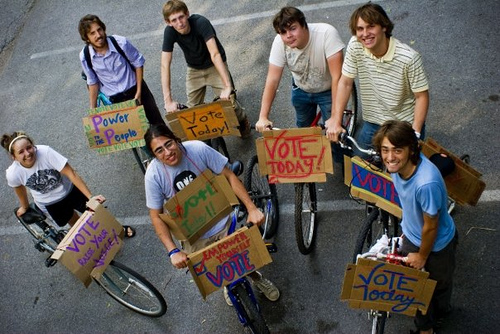
In the United States, the power of minority voters cannot be underestimated. African Americans, Hispanic Americans, Asian Americans, Native Americans, and other minority groups have the potential to sway elections and shape the political landscape. However, mobilizing minority voters can be a complex and challenging task. It requires a targeted approach that takes into account the unique needs and concerns of each community. By harnessing the strength of the collective, minority voters can make their voices heard and bring about real change.
The Importance of Mobilizing Minority Voters
Minority voters have historically been underrepresented in the political process. This lack of representation has led to policies and decisions that do not always reflect the needs and interests of minority communities. Mobilizing minority voters is crucial for several reasons:
1. Amplifying Voices
- When minority voters come together, they amplify their voices and increase their influence in the political arena.
- By mobilizing as a collective, minority communities can ensure that their concerns are heard and addressed by elected officials.
2. Shaping Policies
- Increased voter turnout among minorities can lead to policies that better reflect the diverse needs of the population.
- When minority voters participate in the political process, they have the opportunity to shape policies that address issues such as healthcare, education, immigration, and racial justice.
Challenges in Mobilizing Minority Voters
While mobilizing minority voters is crucial, there are several challenges that must be overcome to ensure effective participation:
1. Voter Suppression
- Minority communities often face barriers to voting, such as voter ID laws, voter purges, and limited access to polling places.
- Efforts to suppress minority votes can hinder mobilization efforts and prevent these communities from exercising their democratic rights.
2. Lack of Representation
- Minority voters may feel disconnected from the political process due to a lack of representation in elected offices.
- When minority communities do not see themselves reflected in political leadership, they may be less motivated to participate in elections.
Strategies for Mobilizing Minority Voters
Despite the challenges, there are several strategies that can be employed to mobilize minority voters and increase their participation in the political process:
1. Community Outreach
- Engage with minority communities through outreach efforts that are tailored to their specific needs and concerns.
- Build relationships with community leaders and organizations to establish trust and credibility.
2. Voter Education
- Provide information about the voting process, including registration deadlines, polling locations, and ID requirements.
- Offer resources in multiple languages to reach communities with diverse language needs.
3. Grassroots Mobilization
- Empower community members to mobilize their peers and neighbors to increase voter turnout.
- Organize grassroots events such as voter registration drives, candidate forums, and issue-based campaigns.
Conclusion
Mobilizing minority voters is essential for building a more inclusive and representative democracy. By harnessing the strength of the collective, minority communities can make a significant impact on elections and policy decisions. It is crucial to address the unique challenges that minority voters face and implement targeted strategies to engage and empower these communities. Through community outreach, voter education, and grassroots mobilization, minority voters can increase their participation in the political process and bring about positive change for themselves and future generations.
